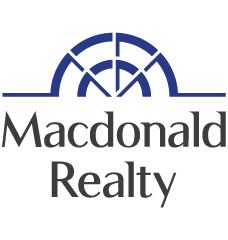Every industry has its “inside” jargon and the real estate industry is no exception. Some of the lingo, such as “location, location, location” are a snap to decipher, while other terms are downright incomprehensible.
Real estate agents sometimes have a tendency to roll this stuff off their tongues assuming their clients understand when, in reality, they may as well be speaking a different language.
Here is a glossary of some of the most common terms you will hear during your real estate transaction:
Adjustable-rate mortgage (ARM) – A mortgage with a fluctuating interest rate. ARMs tend to have lower initial interest rates for a set period of time, and then begin adjusting according to an index. They may adjust monthly, quarterly, annually or longer.
Addendum – A form describing a change or addition to the purchase agreement. Anything added in addendum should be looked at very carefully. Addendums are used for many changes, such as the extension of the closing date.
Appraisal – In a real estate transaction, the appraisal is a determination of the value of a house. The evaluation is required by the lender and prepared by the lender’s choice of an objective and impartial professional appraiser.
Certificate of title: The title certificate is a document that ensures the property being sold is legally owned by the seller(s) and that no other party owns any part of it or has any claims, such as liens, against it.
Closing – This is where the term “closing table” comes into play, and the process is also known as “settlement.” In the past, all parties would sit around a table to sign the closing documents. Today, there are a number of variants, including virtual closings.
Closing costs – All the additional expenses incurred in financing and purchasing the home. These expenses typically include attorney’s fees, land transfer tax, property taxes, and other miscellaneous charges. There is no set cost but the ballpark range is between 2% to 7% of the sales price of the house.
CMA (Comparative Market Analysis) – A determination of a home’s market value for the purposes of determining a fair asking price. Real estate agents compile the CMA by comparing the subject house to those that have recently sold within close proximity. Although the CMA is similar to an appraisal, it will not replace a lender-required appraisal.
Comps – Properties that are comparable to the property being analyzed.
Conditions – A section of the purchase agreement that specifies certain conditions that must be met in order for the sale to proceed. Common conditions in purchase agreements include those for inspections and financing.
Counter offer – A form that requests the addition or elimination of parts of the original purchase agreement.
Disclosures – Information about the home that a seller must provide, by law, to a buyer. The number and types of disclosures provided to the buyer depend on region.
Down payment – The down payment is the percentage of the purchase price that the buyer pays in cash. Depending upon the lender and loan program, this percentage generally ranges from 20 to 25 percent. The down payment is a lender requirement.
Due Diligence – The responsibility of the buyer to exercise the appropriate care before closing on the purchase. Due diligence includes verifying all of the seller’s representations and uncovering any other pertinent facts that have not been disclosed but have a bearing on whether or not you want to purchase the property.
Deposit – The deposit is money provided by the homebuyer to the seller to prove his/her intent to purchase the property. The amount varies, and the check is typically submitted with the purchase agreement. If the sale goes through, the deposit is applied to the down payment. If the buyer walks away from the sale, through no fault of the seller, he may forfeit his deposit.
Credit Score/Report: Your credit score is a compilation of information from the major credit reporting agencies. Your score reflects your debt payment history, amounts owed, length of credit history, new credit, and the types of credit you use. The credit score range is between 300 and 900. Credit scores from 660 to 900 are generally considered good, very good, or excellent. The higher your score, the less of a credit risk you present to lenders.
Fiduciary duty – The broker under which your real estate agent works is your fiduciary. She is held to specific duties, outlined by provincial law, to her principal (you). Some of these duties include disclosure, confidentiality, reasonable care and diligence and loyalty.
Final Walk-Through – The buyer is allowed one last chance to walk through the home prior to the close of escrow. This inspection is not to turn up newly-discovered defects, but to ensure that the home is in the same condition as when the offer was tendered.
Fixed-rate mortgage – A type of mortgage in which the interest rate does not fluctuate over the life of the loan.
Strata Docs: When purchasing a condo or a home in a managed community, you have a right to view recent Strata meeting minutes, a copy of their current budget, depreciation reports and other equally fascinating documents. Think boring, and you’ve got an idea of what’s included in the Strata docs. They’re important, though, so set aside an hour or two to go over them.
Loan-to-value (LTV) ratio – The LTV is a ratio that lenders use to assess risk when providing a mortgage loan. The LTV represents the amount of the mortgage divided by the appraised value of the property. Lenders consider higher LTV ratios as high-risk loans.
Mortgage – A legal document that pledges the house to the lender as security for the loan to purchase the house.
Mortgage insurance – An insurance policy that compensates the lender in the event a borrower defaults on the loan.
Pre-qualification – The process of determining if a borrower qualifies for a loan and the approximate amount of money she may qualify to receive.
Title Insurance – An insurance policy that protects against damages due to defects in the chain of title.
About the Author:

Thinking of buying or selling your home? I have a real passion for buying and selling Real Estate, as well as marketing & real estate investing. I’d love to share my expertise!


